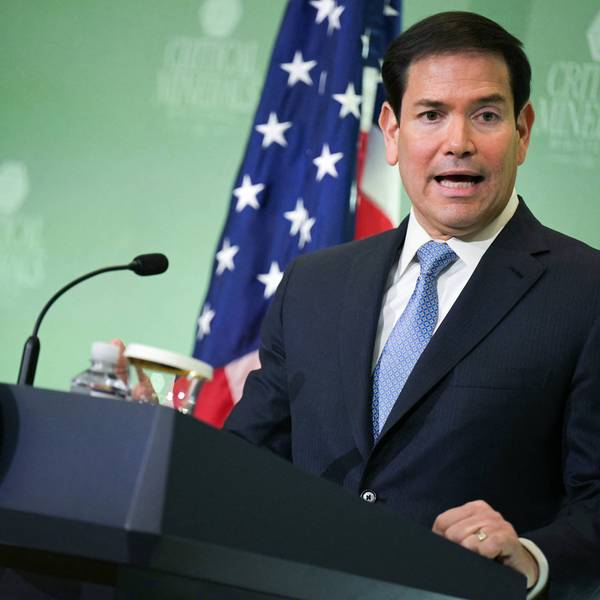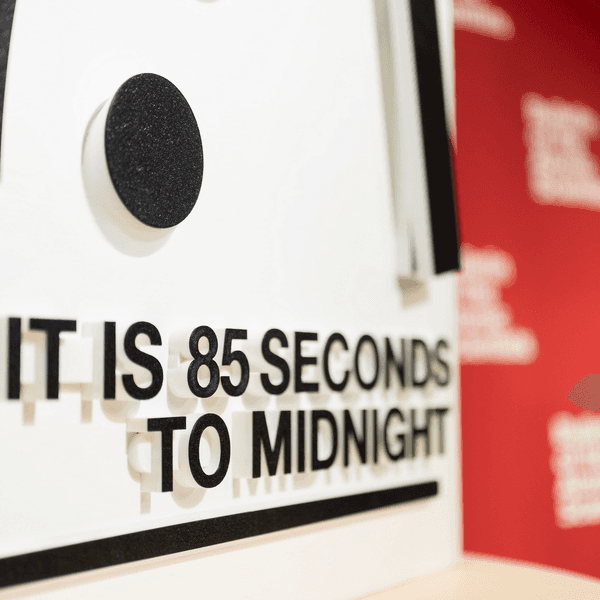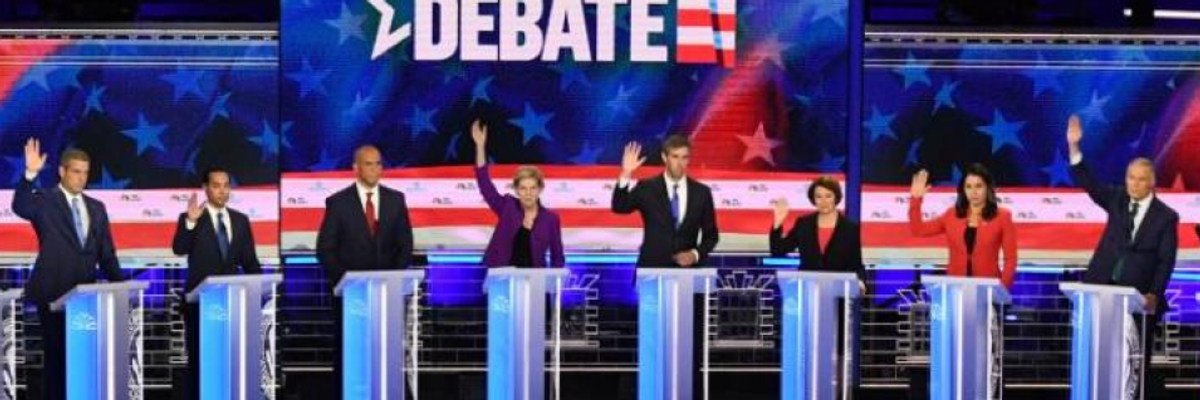Fifty-seven years ago last month the world breathed a sigh of relief. Most of that October in 1962 had been spent on the brink of nuclear war. A stare down at a naval blockade, dramatic UN Security Council meetings, a somber Presidential address, a shot down spy plane - and through it all tense backroom negotiations and letters between Kennedy and Kruschev. Ultimately peace prevailed and we backed away from nuclear armageddon. Now the anniversary is remembered as a shining example of Presidential resolve in the face of crisis. However, that's not the whole story.
President Kennedy's leadership didn't end with the removal of missiles. In some ways it was only just beginning. What he knew was that his responsibility went further. He couldn't just prevent disaster, he needed to address the causes to prevent it from happening in the future. Some steps were taken immediately, the famous "hotline" between the Kremlin and the White House was installed. Kennedy and then Soviet leader, Nikita Khrushchev, continued the correspondence they began in the heat of the moment no longer discussing immediate moves and demands but potential long term routes toward nuclear de-escalation. Ultimately, in June of 1963 President Kennedy publicly outlined his "Strategy for Peace" in a speech at American University. In it he committed to ending US nuclear weapons testing, voiced his support of the global nuclear testing ban, and called for the pursuit of "complete disarmament." By October of 1963, the US Senate had ratified the Limited Test Ban Treaty and the path seemed set for de-escalation.
President Kennedy did not live to finish pursuing that dream. And the path forward for nuclear disarmament has been filled with starts and stops, but his legacy lives on as Presidents from Reagan to Obama pursued new arms control initiatives. Because of that legacy we now live in a world that has reduced nuclear weapons stockpiles by about two-thirds since Kennedy's time.
But, in the historic cycle of stops and starts, we currently find ourselves in a stop - one that we hope to prevent from becoming a full-scale backslide. Our next President is likely to face a crisis with potentially nuclear consequences. It could come from growing conflict in Kashmir between India and Pakistan or from an overly aggressive North Korea. It could come from further collapse of the Iran Nuclear Deal or the freshly brewing arms race between ourselves, Russia, and China. Wherever the source, what is clear is that we must evaluate the candidates on their ability to handle such a crisis, and we cannot stop there. Instead we need to know how those running for President plan to follow Kennedy's legacy and show bold leadership to reduce the risk of nuclear crisis. There are hundreds of related questions we could ask - questions to which we need answers.
Despite the significant reductions since the height of the Cold War there are still more than 10,000 nuclear weapons in the world--90% of them held by the US and Russia.
Despite the significant reductions since the height of the Cold War there are still more than 10,000 nuclear weapons in the world - 90% of them held by the US and Russia. In 2021, days after the inauguration, the New START Treaty - the only remaining arms control treaty between the US and Russia - will expire. Will the candidates promise to extend it? The Trump Administration withdrew from the Intermediate Nuclear Forces Treaty just a few months ago, allowing destabilizing mid-range missiles back into play. Will the candidates promise to re-enter that treaty or renew negotiations?
The US is planning to invest more than $1.7 trillion into upgrading and expanding our nuclear arsenal over the next 30 years. That's around $5,000 for every single person in the US. It will be going into new destabilizing weapons technology produced in facilities that may not be able to safely handle the effort. Do our candidates believe this is the best use of our funds?
Finally, US nuclear weapons stand at ready alert around the world. The President has the authority to launch them without consultation or approval of any other member of government. They can be launched for any reason. This needlessly puts the world at risk not just from an aggressive President but from misunderstanding and confusion.
On this problem, one question gets to the heart of who will take leadership on nuclear weapons: Will the candidates continue to support the policy that gives the US President unfettered authority to start a nuclear war? Or will they instead lower global risk of war and publicly commit the US to a nuclear No First Use policy?
These are the nuclear weapons issues the next President must face. They are too pressing and too important to be ignored. We must know the candidate's vision on nuclear policy -- their approach to eliminating the risk of nuclear war. We must know if they will put us back on the track toward Kennedy's dream of complete disarmament. If they will, in his words "labor on - not toward a strategy of annihilation, but toward a strategy of peace."




